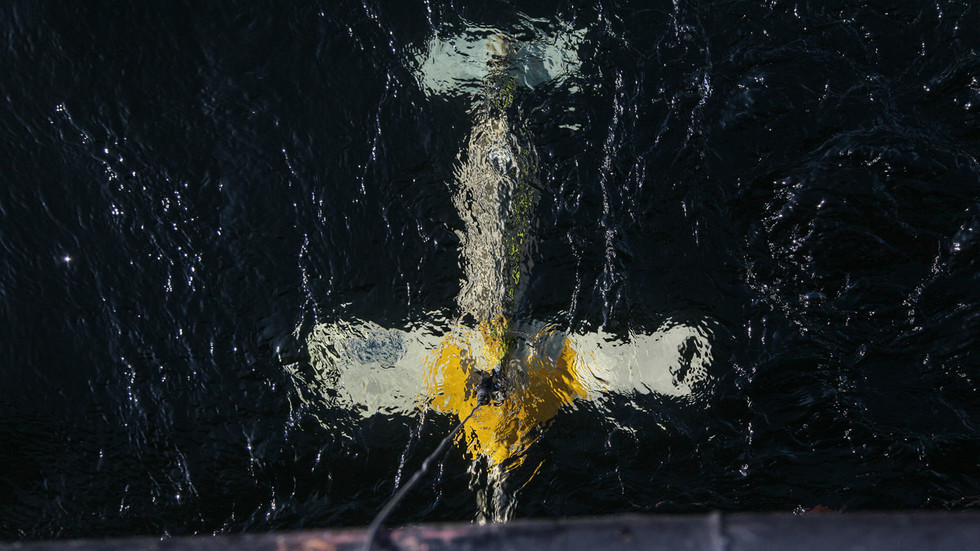
Cadets will learn how to protect key infrastructure from sabotage attempts, the announcement said

FILE PHOTO: An underwater drone being launched from a hydrographic survey boat of the Russian Northern Fleet. © Sputnik / Pavel Lvov
A major Russian university is launching a course to train submersible drone operators at its military school. The new program was announced on Thursday by the Far Eastern Federal University (FEFU), which is based in Vladivostok in Russia’s Far East. It will be taught starting next year by the on-campus military training center.
“The FEFU has accumulated unique experience in underwater robotics, and our military center has the most advanced equipment. This tandem of scientific knowledge and technology is best suited for the new course,” Boris Korobets, the president of the university, was quoted in a statement as saying.
Graduates will know how to “conduct surveillance of underwater engineering systems, ship hulls and bodies of water,” according to the university. They will also learn how to use unmanned craft “to prevent attacks by diver saboteurs and protect infrastructure from other threats.”

Read more
Practical classes will involve piloting a small civilian drone called the ‘Marlin-350’, the university said. It can apparently be used to a maximum depth of 350 meters, for which it is rated as specified by its producer, the Moscow-based firm Tetis Pro. The craft has visual and echo sensors as well as a manipulator and can be deployed from a vessel or from shore. The university said it has ordered a small motorboat for the training program.
The announcement incidentally came days after investigators in Finland reported their conclusion about the damage done earlier this month to Balticconnector, an undersea gas pipeline. The National Bureau of Investigation said the anchor of a Chinese-registered container ship likely caused it. Two undersea telecommunications cables were also compromised in the same incident.
Last week, before details about what had happened emerged, there was speculation in some European nations that Russia may have deliberately sabotaged the energy link in an alleged clandestine undersea operation.
NATO Secretary General Jens Stoltenberg called the pipeline “NATO-critical infrastructure” and pledged “a united and determined response” by the US-led bloc, if sabotage were confirmed. Latvian President Edgars Rinkevics suggested that NATO should “close the Baltic Sea to [Russian] shipping,” if Moscow was behind it and should similar incidents continue.




